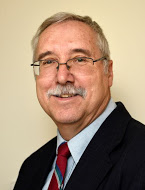[Opinion] The end of Europe’s romance with Palestinian terror?

[Excerpts]
Seventeen years ago, in 2004, a European Parliament visiting delegation to Israel asked me to brief them on E.U. funding for Palestinian and Israeli political NGOs operating under the banners of human rights, peace and other worthy causes. Although the budgets were small then (“only” a few million euros), these NGOs did major damage. But before I could speak, an E.U. official tried to prevent my presentation, declaring that I was about to reveal state secrets. His face turned redder when I pulled out the numerous brochures from the NGO grantees bearing the E.U. logo.
But beyond the logos, the details of the deep and often personal European relationships with the leaders of influential Palestinian and Israeli NGOs were and remain closely guarded state secrets, on the level of nuclear weapons. This strange and fundamental departure from the transparency that is central to democratic norms explains why year after year, the members of an NGO network linked to a terror organization, the Popular Front for the Liberation of Palestine (PFLP), are among the main recipients of European funding. Since 2011, European governments have provided at least 200 million euros to these organizations, including 40 million from the European Union, and probably more from subcontracting that is not reported and from grants that remain hidden.
The arrest and indictment of a number of four individuals with high-level positions in the benignly named Health Workers Committee, who are charged with diverting NGO funds directly to terror groups, shines a bright spotlight on this core dimension of the NGO industry. After many years of hiding the details and denying the extensive evidence of links published in NGO Monitor research reports, it will now be harder for the European officials in charge of the funding to continue to claim “we did not know,” “the evidence you provide is not absolute proof,” or “we do not need to examine the recipients because other countries and the U.N. are funding the same groups.”
Recently, however, recognition of the damage done and the need for independent oversight regarding these NGO relationships has gradually increased. One year ago, Olivér Várhelyi, E.U. Commissioner for Neighborhood and Enlargement (which has jurisdiction over some of the seven distinct E.U. funding mechanisms) ordered a comprehensive investigation of terror ties involving NGO grantees, and declared that such funding “will not be tolerated.” That report is expected very soon.
